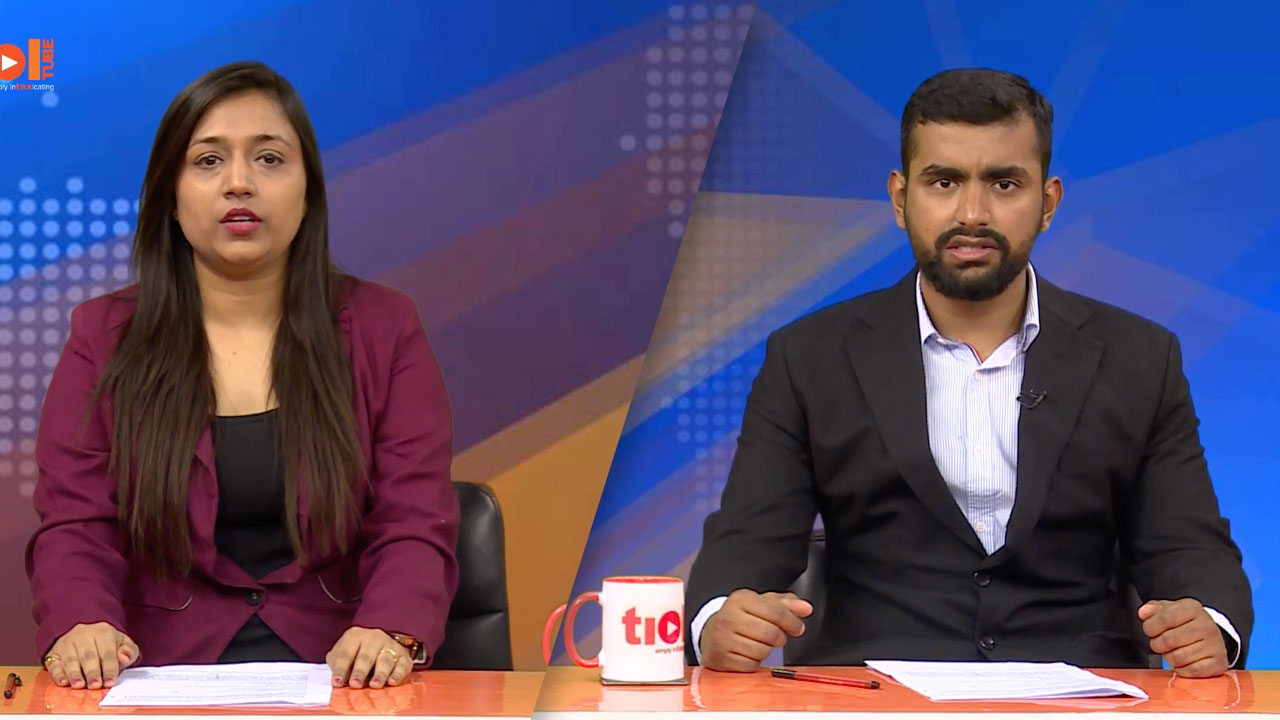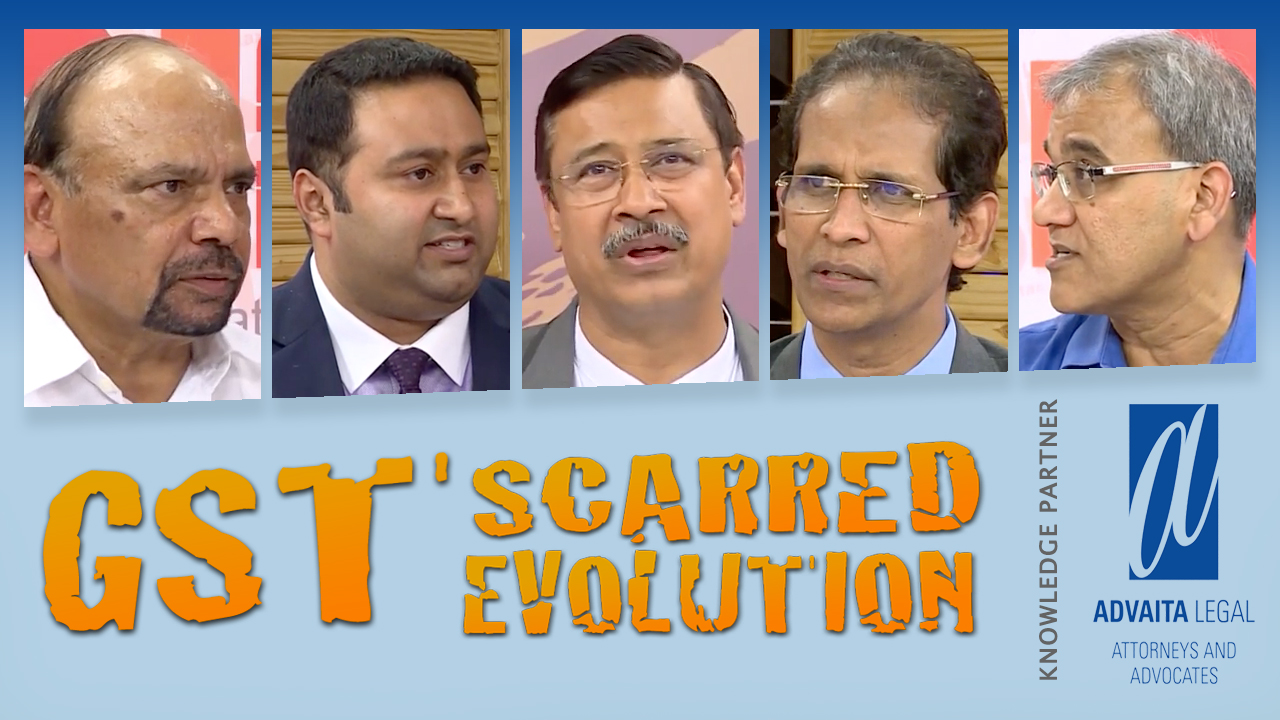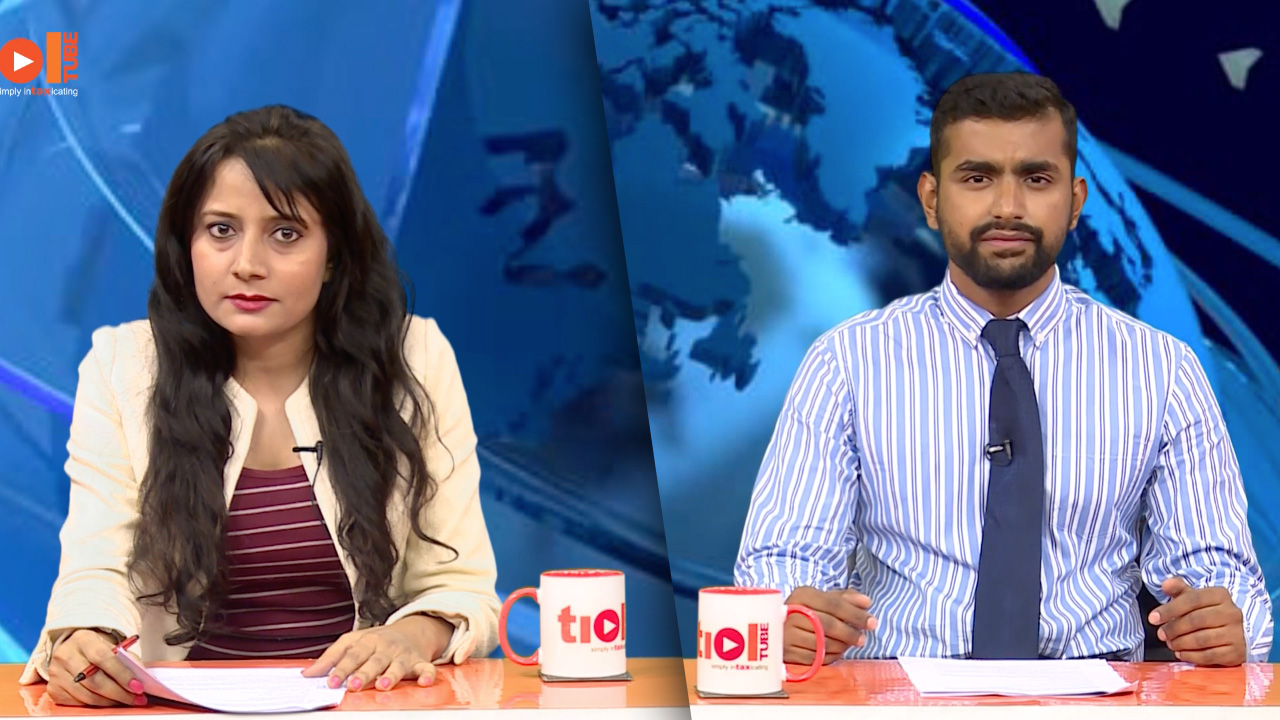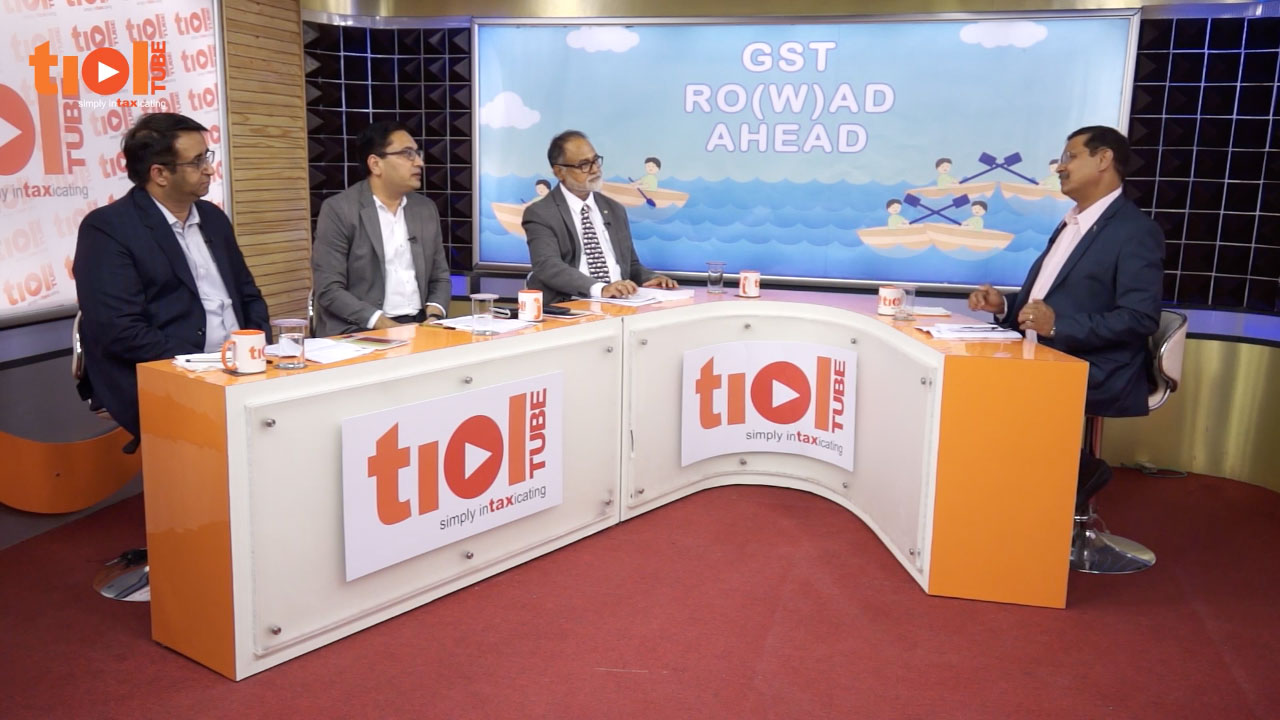SERVICE TAX
2018-TIOL-2304-HC-KAR-ST
Xl Health Corporation India Pvt Ltd Vs UoI
ST - Petitioner-assessee claimed refund of tax on account of export of services rendered by it - on the said issue for the previous period, the matter was decided by the Tribunal - 2017-TIOL-2600-CESTAT-BANG in favour of the assessee by setting aside the order of the Commissioner(A) - for the subsequent period, when the appeal came to be filed before the Commissioner(A) on the same set of facts, in total breach of the judicial discipline, the Commissioner(A) observed that he did not find any reason to change his mind or findings thereof and, therefore, saw no reason or justification to set aside the Order-in-Original - Petitioner challenges this order - counsels at the bar informed the Court that no further appeal to the High Court or SLP before the Supreme Court was filed and that order of the Tribunal has become final .
Held: Impugned order apparently files in the face of the Tribunal's order dated 23.3.2017 - 2017-TIOL-2600-CESTAT-BANG and, therefore, cannot be sustained - Writ petition, therefore, clearly deserves to be allowed with exemplary costs - the first appellate authority throwing to the winds, the principles of judicial discipline and binding order passed by higher appellate forum, not only reiterated his own stand, which were set aside by the Tribunal but the same is sought to be defended by the Department - The total callous, negligent and disrespectful behaviour shown by the Departmental authorities in this Court should not be tolerated at all - It is this kind of lack of judicial discipline, which if it goes unpunished, will lead to more litigation and chaos and such public servants are actually a threat to the society - Impugned order dated 09.06.2017 is quashed and set aside - Cost is quantified at Rs.1 lakh to be deposited by Commissioner of Service Tax (Appeals) from his personal funds with the Registrar General of the Court within a period of one month - On failure to deposit, a copy of the order is to be sent to the Secretary concerned of the Revenue Department, Ministry of Revenue for taking needful disciplinary action against the said Officer - Upon deposit, the said costs shall be made over to the "Prime Minister's Relief Fund" - Petitioner-assessee to approach the Commissioner concerned with a fresh request to consider the request of refund in accordance with law and in terms of the order passed by the Tribunal on 23.3.2017 and the said officer will pass appropriate orders, granting the refund after verifying the facts within a period of three months - Writ Petition allowed: High Court [para 5, 8, 10]
- Petition allowed
:
KARNATAKA
HIGH COURT
2018-TIOL-2303-HC-MAD-ST
Ganesan Builders Ltd Vs CST
ST - (i) Whether the ST amount, paid on insurance services provided by the appellant to workers working at their site, as per the mandatory requirement of labour laws, is one of the excluded services for the purposes of clause (c) of the definition of “input services” under rule 2(l) of Cenvat Credit Rules, 2004 ?(ii) Whether such insurance services to be mandatorily provided by employer under labour laws, being a cost to the appellant in relation to the rendering of taxable service of the appellant, be an eligible input service for availing cenvat credit of ST paid thereon, or to be considered as ineligible and excluded category of input service coming within the ambit of expression “are used primarily for personal use or consumption of any employee” under clause (c) ?(iii) Whether in the facts and circumstances of the case, the expression used primarily for personal use of consumption of any employer, would denote and mean only a particular or individual employee or to be applied to employees in general, all employees ?
HELD - the Tribunal missed a very significant point, while taking a decision as to whether the credit availed by the assessee [appellant] is eligible or not -the first and foremost factor, which should have weighed in the mind of the Tribunal is the nature of the policy availed by the assessee; the beneficiary of the policy; and the Statute, under which, the policy is required to be availed – the assessee is required to avail such a policy because of a statutory requirement under the Building and Other Construction Workers (Regulation of Employment and Conditions of Service) Act, 1996 [1996 Act] - the inclusion of the Workmen's Compensation Act, 1923 in the 1996 Act, a beneficial legislation, is for the purpose of protecting workmen, who generally belong to unorganized sector- the policy does not name the employees, but categorized the employees based on their vocation/skill - the insured is the assessee and the intention of the policy is to protect the employees, who work in the site and not to drive them to various forums for availing compensation in the event of an injury or death – thus, the Tribunal fell in error in dismissing the appeal filed by the assessee and equally the First Appellate Authority as well as the Original Authority failed to interpret the statutory provisions, in the manner it is required to be done - the appeal filed by the assessee is allowed and the substantial questions of law are answered in favour of the assessee and against the Revenue : HIGH COURT [para 9,10, 11, 14, 15]
- Civil Miscellaneous Appeal allowed: MADRAS HIGH COURT
2018-TIOL-3312-CESTAT-MUM + Case Story
Import Express India Pvt Ltd Vs Commissioner of CGST
ST - Appellant is a 100% subsidiary of Shop Your World PTE Ltd., Singapore (Parent Company) - Parent company sells their products to their customers in India - Appellants are providing various services categorised under Business Auxiliary Services (BAS) to their parent company such as collecting of payments from their customers on behalf of parent company, co-ordinating with the courier company, customer support etc. and for the said services the appellant is being service charges in the form of commission by parent company as per clause 4 of their service agreement - although the customers made online payment to the parent company for the purchased products on occasions the customers made payment to the appellant in India and who, in turn, after deducting their service charge/commission transfer the remaining amount to the parent company at Singapore through banking channel - appellant had claimed refund under the Export of Services Rules, 2005 in respect of the rebate paid on export of services but the same was rejected by lower authorities - appeal to CESTAT.
Held: Since out of the total payment to be made by the appellant in India to its Parent company in Singapore, portion of the same was reduced to the extent of his service charges/commission and the remaining amount was remitted to the foreign Parent company in foreign exchange and since such Indian rupees was obtained in lieu of foreign exchange, therefore, the same will be deemed to be convertible exchange - Supreme Court in J.B.Boda & Co. 2002-TIOL-2578-SC-IT while interpreting convertible foreign exchange under the provisions of Income Tax Act has laid down that brokerage income retained by the assessee acting as agent of foreign reinsurer out of the premium collected from the ceding insurance company in India and remitting the balance to the foreign insurer in foreign exchange can be said to be income in convertible foreign exchange and hence qualifies for deduction under s. 80-O of the Income Tax Act - Although rule 3(2) of the Export of Services Rules, 2005 requires the payments to be received by service provider in convertible foreign exchange, in view of the decision of apex court (supra), even the procedure of retaining the service charge/commission amount and only remitting the remaining portion of the proceeds in foreign exchange will have to be necessarily treated as saving of foreign exchange and by implication is akin to receipt of monies in convertible foreign exchange - Outflow of foreign exchange has been reduced to the extent of commission/service charge retained by the appellant within India and such retention has to be necessarily treated as saving of foreign exchange - appellant is entitled for refund - appeal is allowed: CESTAT [para 6, 8]
- Appeal allowed
: MUMBAI CESTAT
2018-TIOL-3304-CESTAT-MAD
CCE Vs Fenner India Ltd
ST - Assessee entered into a Trade Mark and Name agreement with M/s. Fenner U.K. - The name of M/s. Fenner can be used for ever by the assessee, while the use of trade mark is restricted for use upto 10 years only and is renewable after 10 years - The consideration for grant of the right was Rs.4,77,99,000/-and it has to be paid within a period of 7 days of agreement - The appeal was filed by department against the order passed by Commissioner (A), who set aside the demand of service tax, interest thereon and the penalties imposed - The department was of the view that since the Intellectual Property Service came within the tax net with effect from 10.09.2004, assessee was liable to pay service tax as a service recipient of foreign company under the reverse charge mechanism - Assessee has relied upon the judgment of Tribunal in case of Denso Haryana Pvt Ltd. 2015-TIOL-2649-CESTAT-DEL - An identical issue was considered by Tribunal in said decision, Tribunal has observed that the agreement was executed before 10.09.2004 and there cannot be any continuous supply of service so as to make the same taxable after 10.09.2004 - Prior to 18.04.2006, demand unsustainable as per decision laid down in case of Indian National Shipowners Association 2008-TIOL-633-HC-MUM-ST - Following the said decision, the impugned order call for no interference: CESTAT
- Appeal dismissed: CHENNAI CESTAT
2018-TIOL-3303-CESTAT-BANG
Venkataramanan Associates Vs CCE
ST - The assessee is a partnership firm engaged in providing architect service - During the period of dispute, the Department raised duty demand with cess, with interest & penalty - Duty already paid was appropriated - However, penalties u/s 76 & 77 were dropped on grounds that the assessee did not intent to evade payment of service tax & that it had paid the same immediately upon being pointed out - However, penalty u/s 78 was imposed - As such order was not challenged, it attained finality - The Commr. of Service Tax later issued review SCN, proposing to impose penalty u/s 76 & 77 on grounds which were not mentioned in original proceedings - Such SCN culminated into an order imposing penalties u/s 76 & 77 and also hiking the penalty imposed u/s 78
Held - The issue at hand is no longer res integra - There are several judgments specifying the circumstances which validate invokation of Commissioner's power to issue review SCN - Considering the High Court decisions in CST Vs. Motor World and CCE, Jalandhar Vs. Darmania Telecom and also the Tribunal's decision in S-Mac Security Services Pvt. Ltd. Vs. CST, Bangalore the order passed by the Commr. in the present case is unsustainable: CESTAT (Para 2,6.1-6.3,7)
- Assessee's appeal allowed: BANGALORE CESTAT
2018-TIOL-3302-CESTAT-BANG
Adecco Flexione Workforce Solutions Ltd Vs CCE & ST
ST - The assessee have filed these appeals against the impugned orders whereby Commissioner has imposed the penalty under Section 76 for default in payment of service tax within the stipulated time in which the service is provided as per Rule 6(1) of Service Tax Rules, 1994 read with Section 68 of the Act - Assessee has collected the service tax but has not deposited the same in Government Treasury and when the SCN was issued for default, thereafter, assessee paid the service tax along with interest - The only ground raised by assessee for seeking waiver of penalty under Section 80 is that they had financial difficulties on account of which they could not pay the service tax in time but this is not a sufficient ground because they have collected the service tax from their customers - Further, the Tribunal in case of Triton Communications Pvt. Ltd. 2005-TIOL-1640-CESTAT-MUM has held that financial crisis is not a reasonable cause for failure to pay tax - In the past also, assessee has committed default in payment of service tax in time - No doubt the assessee had some difficulties on the financial front but that cannot be the reason for non-payment of tax once they have collected from the customers - No infirmity found in the impugned order, same is upheld: CESTAT
- Appeals dismissed: BANGALORE CESTAT
CENTRAL EXCISE
2018-TIOL-2302-HC-MUM-CX
Commissioner of CGST & Central Excise Vs Twenty First Century Wire Rods Ltd
CX - Motion filed by Revenue seeks condonation of delay of 639 days – motion seeks to set aside the order dated 25th August 2016 passed by the Prothonotary and Senior Master rejecting the appeal under rule 986 of the Bombay High Court (Original side) Rules for non-removal of office objections – ground offered for the delay is that there was a change in the panel counsel handling the matters for the Excise department; that w.e.f 1st July 2017, the Goods and Services Tax Act, 2017 came into force resulting in reorganisation of the department.
Held: Change of panel advocates does not absolve the officers of the Revenue from keeping themselves abreast of the proceedings in this Court and/or taking appropriate steps to appoint new advocate for the panel - Not taking steps in the above regard is itself evidence of negligence on the part of the Revenue – Observations of the High Court, in the case of Commissioner of Income Tax Vs. Reliance Industries Limited - 2017-TIOL-1719-HC-MUM-IT dealing with a direct tax appeal, that the Revenue must set its own house in order by sacking and removing the delinquent and negligent officials or penalising them otherwise so as to subserve larger public interest apply equally to the present facts – High Court is not satisfied with the reasons set out in support of the Applicant to condone the delay as it evidences negligence on the part of the Revenue - Motion is dismissed: High Court [para 4, 5]
- Motion dismissed: BOMBAY HIGH COURT
2018-TIOL-3301-CESTAT-MUM
ACC Ltd Vs CCE
CX - Appellant, engaged in the manufacture of Cement (Chapter 25) cleared packed cement for captive consumption and by availing concessional rate of duty as per Entry no. 1C of Notification 4/2007-CX - Revenue denied the benefit on the ground that appellant is not a mini-cement plant; that clearance being for captive consumption no retail sale is involved and clearances are in packaged form only - as Commissioner(A) upheld this order, appeal before CESTAT.
Held: Issue that is required to be decided is whether the clearances are to be treated as ‘other than those cleared in a packaged form' - appellant have cleared the goods for captive consumption and the packages are marked 'not for retail sale/re-sale' and there is no RSP declared - by virtue of the third proviso to the notification, such goods are to be assessed/determined to duty as in the case of goods cleared in, ‘other than packaged form' - therefore, the goods are to be cleared in terms of 1C of the said notification - impugned order is not maintainable in law - appeal allowed with consequential relief: CESTAT [para 4, 4.1, 5]
- Appeal allowed: MUMBAI CESTAT
2018-TIOL-3300-CESTAT-MUM
Bridgestone India Pvt Ltd Vs CCE & ST
CX - CENVAT credit taken on rent-a-cab, workmen's compensation insurance, book binding and cricket ground preparation services has been reversed by appellant before issuance of SCN - demand confirmed along with imposition of penalty u/r 15(2) r/w s.11AC of the CEA, 1944 - appellant is not contesting disallowance of credit but contends that penalty is not imposable since the entire CENVAT credit was reversed prior to issuance of SCN and there was no element of fraud, suppression etc.
Held: On a plain reading of rule 15(2) of CCR and s.11AC of CEA, 1944, it transpires that onus entirely rests on Revenue to prove that the ingredients mentioned for invocation of the penal provisions are fulfilled - department has not adduced any plausible evidence to sustain the charges leveled against the assessee and on the contrary undisputed facts are that the availment of irregular CENVAT credit was disclosed by the assessee in their monthly ER-1 returns - moreover, since there was a huge balance of CENVAT credit in their accounts at the time between taking such irregular credit and subsequent reversal, therefore, it cannot be said in the circumstances that the appellant had taken irregular credit with a fraudulent intention to defraud government revenue - imposition of penalty cannot be sustained - appeal allowed to such extent: CESTAT [para 7, 8, 9]
- Appeal partly allowed: MUMBAI CESTAT
2018-TIOL-3299-CESTAT-MUM
Dharamsi Morarji Chemical Company Ltd Vs CCE
CX - Appellant is engaged in manufacture of Sulphuric acid, its derivatives and fertilizers - A part of the sulphuric acid is used in the dimineralisation of water (DM water) which is being used captively for manufacture of their final products - Benefit of captive consumption notification 67/95-CE being availed by them in respect of Sulphuric acid used for manufacture of DM water has been denied on the ground that DM water is exempted from payment of CE duty - demand confirmed, hence appeal before CESTAT.
Held: Matter is no longer res integra in view of apex court decision in Hindustan Sanitaryware and Industries - 2002-TIOL-72-SC-CX and where it is held that exemption to captive consumption of modvatable inputs is available even if intermediate product is exempt from duty but final product is dutiable -Inasmuch as DM water comes into existence during the course of manufacture of final product and is used captively the same has to be held as an intermediate product and not a final product - in such scenario benefit of captice consumption notification 67/95-CE is available - impugned order set aside and appeal allowed with consequential relief: CESTAT [para 5, 6]
- Appeal allowed: MUMBAI CESTAT
CUSTOMS
2018-TIOL-2308-HC-MAD-CUS + Case Story
Vedanta Ltd Vs UoI
Cus - By not allowing exemption of IGST at the time of import, no benefit in the AA scheme is altered by the Government - choice of policy is for the decision maker, in this case the Government, to make and not for the Court - It is not open for the petitioner to chose one scheme and insist the government to modify that scheme to its convenience - It has not been established before this court that the decision suffers from perversity, irrationality or arbitrariness - Writ Petitions dismissed: High Court [para 4 to 11, 13]
- Petitions dismissed
:
MADRAS
HIGH COURT
2018-TIOL-3298-CESTAT-MUM
Greenity Logistics Pvt Ltd Vs CC
Cus -Broker's licence - During investigation against the importer, it was revealed that one of the employees of the appellant-Customs broker was instrumental in procuring false test certificates facilitating undervaluation of the goods by the importer resulting into short payment of duty - consequently, Commissioner prohibited the appellant under the provisions of Regulation 23 of the BLR, 2013 from working in all sections of Mumbai Zones I, II and III with immediate effect - appeal filed against this order before CESTAT on the ground that they were neither put to notice nor afforded any opportunity of personal hearing; that order has been issued in gross violation of the principles of natural justice - Revenue contention is that there is no stipulation in CBLR, 2013 to grant an opportunity of hearing before an order is passed.
Held: Bombay High Court in the case of S R Sale & Co. - 2013-TIOL-455-HC-MUM-CUS has observed that Regulation 21 does not exclude the requirement of complying with the principles of natural justice; that observing the principles of natural justice is the rule and dispensing it is the exception to the said rule; that exception can be resorted to only in extraordinary circumstances - if the situation is such that the personal hearing if allowed would defeat the very purpose of directing prohibition then it should be resorted to; in the impugned order there is no evidence or observation made by the Commissioner justifying direction of prohibition by dispensing with the personal hearing to the appellant - in these circumstances, Bench is left with no other option but to set aside the impugned order and remand the matter to the adjudicating authority to decide the issues afresh after affording a reasonable opportunity of hearing to the appellant - Appeal allowed by way of remand: CESTAT [para 7, 8]
- Matter remanded: MUMBAI CESTAT
2018-TIOL-3297-CESTAT-MUM
Hindustan Pulverising Mills Vs CC
Cus - Appellant imported consignment of goods and declared the same as Plant Extracts (Bio fertilizer) and classified the same under CTH 3101 0099 - representative sample was forwarded to the Regional Centre for Organic Farming, Nagpur and Ghaziabad and they reported that the samples are not Bio fertilizers - imported goods were, therefore, seized and SCN was issued proposing to classify the impugned goods under CTH 1302 1990 and demanding differential Customs duty of Rs.72,37,601/- and also proposing confiscation in respect of goods earlier imported /imposition of redemption fine - demand confirmed in respect of consignment seized but in respect of past imports duty demand dropped and no penalty or confiscation ordered in respect of those imports - both, importer and Revenue in appeal before CESTAT.
Held: Commissioner has correctly held that when there is a legal definition available on the subject defining an item, no other definition can be adopted in this regard - moreover, the appellant themselves have mentioned the product to have been extracted from different plants grown in China and this being the case, there should be no hesitation or doubt in categorizing the impugned product as “Extracts" - Chapter 13 refers to “Plant Extracts" only, HSN 1302 1990 refers to “Others derived from vegetable products" - arguments that the 'extracts' of Chapter 1302 are raw materials in nature for further processing for ultimate consumption or use by human beings is not convincing - nowhere in Chapter Notes or HSN Notes for Chapter 13 it is mentioned that the products are of edible nature - goods are, therefore, correctly classifiable under Chapter 13 of CTH - as regards the stand of the importer that earlier consignments were assessed and cleared under CTH 31 and, therefore, department cannot change its stand is not acceptable as there is no estoppel in taxation matters and Revenue was well within its right to revise the classification - importer has raised the issue of classification under Chapter 38 vis-à-vis Chapter 31 but since the SCN has not raised this issue, same cannot be considered - since the Bills of Entry were provisionally assessed, it was open to the department to keep an alert in the system to interdict subsequent Bills of Entry - having failed to do so, department cannot allege suppression on the part of the importer, the demand, therefore, needs to be restricted to the normal period of limitation only - in respect of goods which were seized and provisionally released, the adjudicating authority ought to have imposed redemption fine and to this extent the department appeal is allowed - in fine, the duty demand is restricted to the normal period, goods are classified under CTH 1302 1990 as Plant Extract and redemption fine of Rs.1 lakh is imposed - Both appeals are partially allowed: CESTAT [para 6.3, 6.4, 6.5, 6.6]
- Appeals partly allowed: MUMBAI CESTAT |









